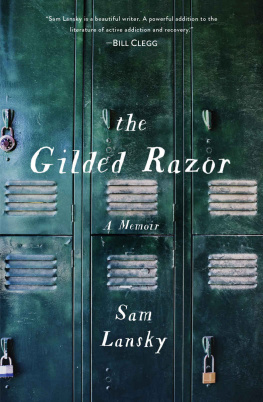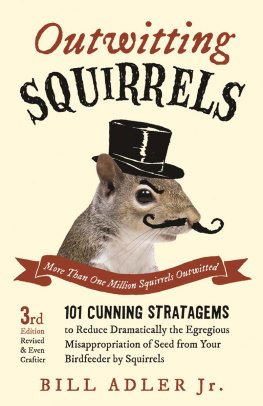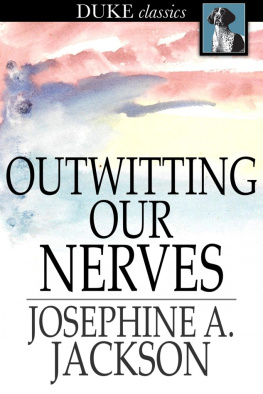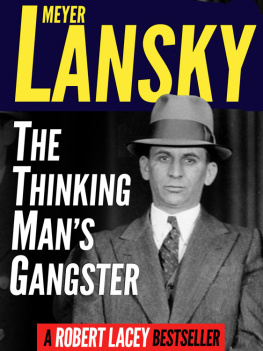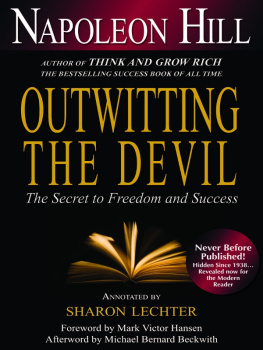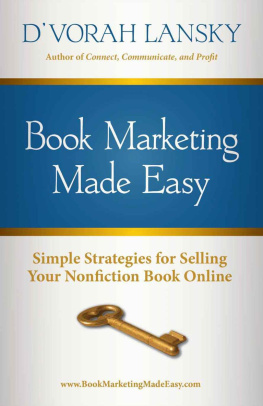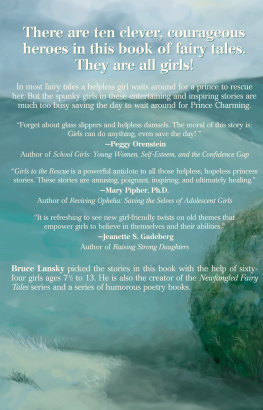Outwitting History
THE AMAZING ADVENTURES OF A MAN WHO RESCUED A MILLION YIDDISH BOOKS
by Aaron Lansky
Algonquin Books of Chapel Hill
for Gail
Authors Note
Because I was a participant in the events that follow and not a reporter, most of the people who appear in this book did not know I would write about them one day. To protect their privacy, I have changed certain names, places of residence, and other identifying characteristics. The rest of their stories are accurate within the limits of memory, both theirs and mine.
Published by
ALGONQUIN BOOKS OF CHAPEL HILL
Post Office Box 2225
Chapel Hill, North Carolina 27515-2225
a division of
Workman Publishing
225 Varick Street
New York, New York 10014
2004 by Aaron Lansky. All rights reserved.
First e-book edition, September 2012.
Excerpt reprinted with the permission of Simon & Schuster Adult Publishing Group from Patrimony by Philip Roth. Copyright 1991 by Philip Roth. Excerpt from Tevyes Daughters by Sholom Aleichem, copyright 1949 by the Children of Sholom Aleichem and Crown Publishers, a division of Random House, Inc. Used by permission of Crown Publishers, a division of Random House, Inc.
Library of Congress Cataloging-in-Publication Data is available for a previous edition of this work.
E-book ISBN 978-1-56512-636-7
CONTENTS
PART ONE:
Learning Yiddish
PART TWO:
On the Road
PART THREE:
Him I Dont Talk To!
PART FOUR:
Ganvenen dem GrenetsCrossing the Border
PART FIVE:
Bringing It All Back Home
FOREWORD
MAX WEINREICH, the greatest Yiddish scholar of his generation, was delivering a lecture in Finland when the Nazis invaded Poland on September 1, 1939. The lecture saved his life. Unable to return to his home in Vilna, he made his way to New York, where he opened his doors to American students. Few came. Although many thought his work here was hopeless,Weinreich persevered. When a student asked him why, he answered simply: Because Yiddish has magic, it will outwit history.
And so it has. Not long ago, I met under an apple tree with a group of very bright college students. Why are you interested in Yiddish? I asked. They laughed. Dont you understand, one young woman explained, the sun glinting off a diamond stud in her bellybutton, nowadays Yiddish is hip!
Just how hip is something Ive had a chance to gauge for myself over the past twenty-five years. In 1980, at the age of twenty-four, I decided to save the worlds Yiddish books. At the time scholars believed 70,000 volumes remained; today, my colleagues and I have collected more than one and one-half millionmany of them at the last minute from attics and basements, demolition sites and Dumpsters. Most Jewish leaders dismissed my plans by saying that Yiddish was dead; today the organization I founded, the National Yiddish Book Center, has thirty-five thousand members, making it one of the largest Jewish cultural organizations in the United States.
This book is an adventure story: It tells how a small group of young people saved Yiddish books from extinction. Its also the story of the Yiddish-speaking immigrants who owned and read those bookshow they sat us down at their kitchen tables, plied us with tea and cakes, and handed us their personal libraries, one volume at a time. The encounters were almost always emotional: People cried and poured out their hearts, often with a candor that surprised us all.
At the time, my coworkers and I were still in our early twenties. We drove dented trucks and wore sweatshirts and faded jeans. Yet whether out of hope or desperation, people trusted us with their yerushe, their inheritancetheir books and stories. For us it was a huge and sometimes overwhelming responsibility: How could we take care of so many books, remember so many stories, preserve so much history?
I am now forty-nine years old, and with few exceptions the people who entrusted me with their books in those early years are gone, and their world with them. Even as I write, despite the growing curiosity of scholars and the enthusiasm of young people, within the Jewish mainstream the story of Yiddish culture continues to be erased, our history rewritten, our sensibility recast, our identity redefined. More and more, as memory fades, the books we collected are all that remain. For that reason, the time has now come to tell this tale. Its sad, and funny, too. Its the best way I know to identify whats missing from contemporary Jewish lifeand to begin to reclaim what weve lost.
PART ONE
Learning Yiddish
1. Out of the Dumpster
The phone rang at midnight. That wasnt unusual: Older Jews often waited until the rates went down before phoning me about their Yiddish books. But tonight I had just returned from a long collection trip, it was snowing outside, our house was cold, the phone was in the kitchen, and I had no intention of crawling out from under the covers to answer it.
Brinnnnng! Brinnnnng!
My girlfriend, Laura Nelson, covered my ears. It can wait, she hushed.
Apparently it couldnt. Five, ten, fifteen rings and finally my house-mate, Scott Bolotin, went bounding downstairs to answer it himself. Thirty seconds later he was pounding on my bedroom door. Aaron! Quick! Get up! Its for you! It sounds really important this time!
I wrapped myself in a blanket and stumbled to the phone.
Aaron, is that you? I recognized the voice at once: It was Sheva Zucker, a young woman who had taught me Yiddish at a summer program in New York four years before. Im sorry to call so late, she said, but this is an emergency! There are thousands of Yiddish books in a garbage Dumpster on Sixteenth Street and it looks like its going to rain. How soon can you be here?
There was only one train a day from Northampton, Massachusetts, near where I lived, to New York City, but fortuitously it came through at 2 A.M. If I hurried I could make it. I phoned my old college friend Roger Mummert in New York and told him to expect me at 6:45. Laura stuffed a sleeping bag, work gloves, and a loaf of bread into my rucksack. Scott raided our communal food kitty and the tsedoke jar, the shared charity fund we kept hidden in the freezer, and handed me a paper bag filled with $60 in loose bills and change. All I had to do was figure out how to get to the train station, eight miles away.
The roads were too slippery to go by bike. The local cab company was closed for the night. What about your pickup? Scott asked. He meant my 63 Ford, a vehicle so unroadworthy, so full of rust and holes, it had stood abandoned under a pine tree in the backyard since failing the state inspection six months before. But there was no other choice. Scott, Laura, and I rushed outside and brushed off the snow. I pulled out the choke, turned the key, and somehow the old engine shuddered to life. With a lot of pushing we managed to rock it out of the ruts where it had frozen in place. I plastered a clump of snow and pine needles to the windshield to cover the expired inspection sticker and made it to the train station with ten minutes to spare.
LAAAADIES AND GENTLEMENNNN, the station stop is Pennsylvania Station, New York City. Please watch your step while leaving the train. Pennnnnnn Station... I was out the door and running through the station before the conductor could finish. On Eighth Avenue I looked up and noticed the inscription chiseled on the post office across the street: Neither Rain Nor Snow Nor Heat Nor Gloom of Night Stays These Couriers from the Swift Completion of Their Appointed Rounds. The sky was dark and spitting sleet. The clock read 6:37. I hailed a cab and picked up Roger, and together we raced over to Sixth and Sixteenth to find the Dumpster.


